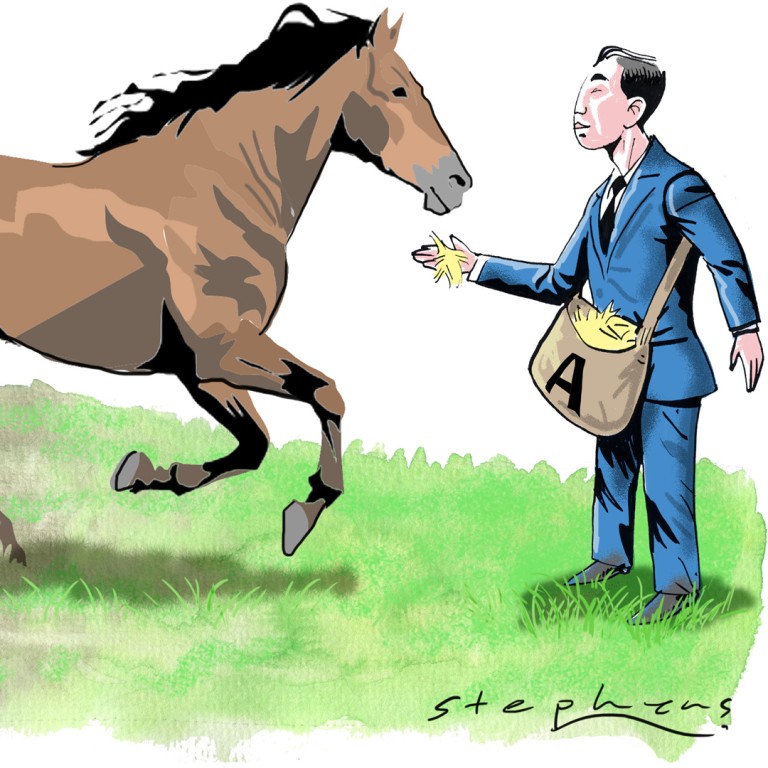
Why foreign-listed companies are returning home on the back of China's stock market surge
Tan Chin Hwee and Min Chen look at how China's stock market surge is drawing back foreign-listed, better-quality Chinese companies keen to take advantage of the favourable climate
In the past two months, US$1.7 trillion has been added to China's stock market capitalisation, with some Chinese valuations now looking excessive. According to leading equity broker CLSA, China's nine largest listed stockbrokers have a combined market capitalisation of US$319 billion. The market is indeed hot; one start-up peer-to-peer Chinese financial portal has, for example, seen one million new subscribers sign up in the past three months.
Overall, the influx of foreign money makes this a great time for state-owned enterprises to deleverage and for banks to recapitalise and write down their debt. On the back of the stunning stock market rally, local investors are quickly coming to two consensuses: one is that it is the government's intention to boost the stock market to aid reform of state-owned enterprises and the economy overall; the other is that high-growth stocks with a small market capitalisation, represented especially by Shenzhen's ChiNext board, will continue to outperform the overall market in such an environment.
The second point was somewhat controversial until recently; the immediate market reaction after Beijing introduced its loosening policies, such as interest rate cuts, has educated market participants: at times of such events, the ChiNext index outperformed not only the broader market, but also sectors such as property and commodities, which conventional wisdom says are more sensitive to conditions of loosening liquidity. In the year to date, the ChiNext index has returned a stunning 114 per cent, way ahead of property (28 per cent) and commodities (36 per cent).
A key reason for the rally is that foreign funds have been buying into the H-share market to chase the rally they have missed, so as not to underperform against their benchmark and peers. Foreign investors have not actively participated in the A-share rally. A strong indication is the low quota utilisation rate of northbound traffic under the Hong Kong-Shenzhen stock through train.
It is hard for outside observers to argue that the ChiNext board is not at the bubble stage. Based on a Bloomberg consensus, ChiNext stocks are trading on average 67 times the forward-price-to-earnings ratio. The board's trading volume is 10.6 per cent of the total A-share market, while its floating market cap is only 6 per cent of the total A-share market.
The stock price of Baofeng Technology, the board's recent star has, for example, risen 34-fold following its IPO in March. The company sought a US listing, but failed and, after restructuring, returned to the A-share market. Ironically, it is now six times the market cap of its bigger competitor, the US-listed Xunlei.
And the Chinese government? Beijing has issued a couple of verbal warnings and guidance about the investment risk on the ChiNext board, but doesn't appear to be seriously worried, at least not yet. The reason? There are different types of bubbles, according to Gavekal Research: bubbles can bid up asset values because of their perceived "scarcity" (typically, land and real estate, but also tulips or gold, for instance), or because of their productivity (telecom lines, energy).
This distinction matters because, in the first case, an economy is left with no more land (or gold or tulips) than at the outset. In the second case, productive capital is put in during the bubble and thus productivity will be enhanced. In that sense, a hi-tech bubble is better than a real estate bubble.
There is an old Chinese story about a king who loved to collect fine horses. After an initially unsuccessful search, he finally learned of a very fine horse, only to discover that it had died. Nevertheless, the king offered an outrageous amount of money for the skeleton and gave it a fine burial. In this way, the king quickly became known as a lover of fine horses, and was soon presented with many living specimens of the finest animals.
China's capital market is no different: the huge valuation gap between domestically listed companies and their better-quality foreign-listed counterparts is encouraging the latter to return to China, an outcome that the government loves to see. This year, Baidu's founder Robin Li openly expressed his desire to come back to the domestic A-share market. Jumei, a company just listed in New York, also revealed its eagerness to return for a better valuation and an investor base that better understands its business.
They could follow the route taken by Focus Media, a name familiar to some US investors as a victim of fraud accusations by investment research company Muddy Waters. The company delisted from Nasdaq in 2013 and has since become a star in the A-share pre-IPO market and plans to list later this year, with a valuation that has ballooned.
In fact, the main concern for those US-listed companies wishing to come back to the domestic market is not the process of delisting, or corporate restructuring, but, rather, the lengthy queue they could encounter to get back to A-share listing. Still, a herd of fine horses is starting to head back to their home market.
For investors, it would be wise not to be distracted by skeletons; they should be hunting for the fine horses.
